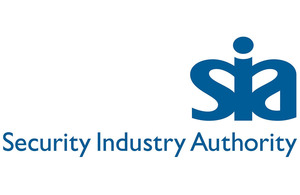On Black Friday (26 November 2021) – and with Cyber Monday a few days away – HM Revenue and Customs (HMRC) is urging shoppers to consider some top tips before they start browsing online to ensure they’re not hit with unexpected customs charges and end up over budget this holiday season.
Changes introduced on 1 January 2021 mean that in the same way that consumers have previously had to pay charges when buying certain items from non-EU sellers, they may now also need to do so when buying goods from the EU.
Katherine Green and Sophie Dean, Directors General, Borders and Trade, HM Revenue and Customs (HMRC) said:
With Christmas rapidly approaching, we don’t want shoppers to be caught out by unexpected charges which will take the fun out of their Christmas shopping experience.
There are now a number of factors that people will need to consider when purchasing goods from the EU, so shoppers are being advised to check guidance to ensure they know what they will owe.
HMRC recommends people look at 7 key areas to determine whether there will be charges on their goods. If there are charges to pay, shoppers are being warned that they may also need to pay a ‘handling fee’ to the courier company before their goods are released.
Top Tip 1: Be aware of where you, the recipient, are based
Shoppers based in Northern Ireland won’t be affected by these changes due to the Northern Ireland Protocol, however those in Great Britain should be prepared for potential changes.
Top Tip 2: Check if your order contains goods subject to excise duties, such as tobacco, alcohol or perfume
Unlike other items, there is no lower threshold for customs charges when it comes to excise goods, so there will be charges due no matter the value or origin of your goods.
Shoppers buying excise goods will need to pay import VAT and excise duty and may also need to pay customs duty (be mindful of our Bonus Tip below!).
Top Tip 3: Check if your order is worth more than £135, before extra costs, such as shipping and insurance are applied
Shoppers buying stocking fillers or small value items, not including excise goods, don’t need to worry as goods sent in consignments worth less than £135 should not attract additional charges, as UK VAT is collected by the seller on behalf of HMRC at the point of sale. This will also apply to goods being purchased from non-EU countries.
Anyone buying a more expensive product from abroad – over £135 – will now need to pay import VAT and may need to pay customs duty. The amount due will depend on a range of factors, including shipping and insurance costs so, to avoid surprises, consumers should consult their seller.
Shoppers who already know they will need to pay import VAT should make sure their seller does not charge them VAT, otherwise they may be charged twice. See Top Tip 5.
Top Tip 4: Remember there are new charges if you’re sending presents overseas – or if someone abroad sends gifts to you
If you’re lucky enough to receive a gift from someone based in the EU and it is valued at less than £39 and it does not contain excise goods, it will be exempt from import VAT and customs duty. Above the £39 threshold, import VAT will be due and once the value of the gift reaches £135, customs duty will also be payable. You could also get charged a “handling fee” – see Top Tip 5
If you are planning on sending a gift to someone based overseas, you should check guidance published by the relevant customs authority to check their specific rules and charges.
Top Tip 5: Be aware of how and when you could be notified of charges
Anyone needing to pay customs charges will be contacted by the courier company and asked to pay the charges before they can receive their goods. Alternatively, the seller may arrange to pay any charges upfront on your behalf, but you should check with the seller to avoid any unwelcome surprises.
Top Tip 6: Check the guidance available to you
To help shoppers navigate these changes, HMRC has produced diagrams outlining 3 fictional scenarios about buying goods from the EU and has published a simple guide on GOV.UK, which also contains essential information on how to dispute a charge, return unwanted goods and to get a refund on the charges paid.
Bonus Tip: Check with the seller whether the goods originated in the EU and whether they qualify for a zero tariff
Customs duty won’t be due on goods if they meet criteria set out in the EU-UK Trade and Cooperation Agreement and a zero tariff can be correctly applied.
The Rules of Origin requirements mean that even if your parcel is valued above £135, if the goods you are buying originate in – or have been sufficiently worked or processed within – the EU, the seller confirms this and the zero tariff is claimed on the customs declaration, you will not need to pay any customs duties although import VAT will still be due.
If customs duty is due, the rate – or the tariff – for each item can be found within the trade tariff tool but it’s recommended you check with your seller to find out exactly what you will owe.

